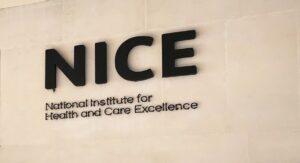In a groundbreaking move, the National Institute for Health and Care Excellence (NICE) has announced the introduction of artificial intelligence (AI) tools aimed at enhancing the accuracy of X-ray diagnostics in urgent care settings across England. This initiative has the potential to significantly diminish the number of missed fracture diagnosis, a common issue in emergency departments where 3-10% of such cases are overlooked, according to NICE.
The announcement comes at a time when the National Health Service (NHS) faces acute staffing shortages, with vacancy rates at 12.5% for radiologists and 15% for radiographers. The integration of AI is expected to alleviate some of this pressure, allowing for faster and more accurate diagnostics while reducing the burden on healthcare professionals.
NICE plans to recommend four AI tools that have shown promise in research, proving to be safe and effective in supporting clinicians. These tools are designed to work in tandem with healthcare professionals, ensuring that each X-ray image is still reviewed by a human expert. This collaborative approach is expected to not only enhance diagnostic accuracy but also streamline the process, potentially reducing the need for follow-up appointments when fractures are missed in initial assessments.
Mark Chapman, NICE’s director of health technology, emphasized the potential benefits of AI in healthcare, stating, “These AI technologies are safe to use and could spot fractures which humans might miss, given the pressure and demands these professional groups work under.”
Beyond fracture detection, AI’s role in healthcare continues to expand. It is already being utilized to detect early signs of breast cancer, assess heart attack risks, and even predict the onset of future pandemics. The potential for AI in medicine is vast and continually evolving.
NICE’s draft guidance on implementing AI in X-ray diagnostics is open for consultation until November 5th, inviting feedback from healthcare professionals and the public alike. The integration of AI tools into urgent care represents a significant step towards a more efficient and reliable healthcare system, promising not only to support clinicians but also to improve patient outcomes.
As the healthcare landscape evolves, AI stands as a beacon of innovation, ready to usher in a new era of medical diagnostics and care. The NHS’s embrace of such technology marks a progressive shift towards harnessing digital advancements for the betterment of public health.




